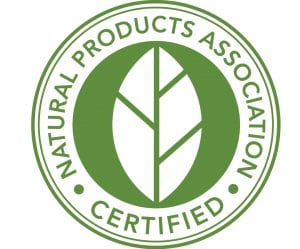Natural Body Care Products
 The cosmetics and personal care industry includes thousands of products, many of which we use on our bodies daily. And it’s indeed very personal. Many people – especially women – have a deep belief that they need to use products to enhance their beauty and personal appeal. But while these products can have a positive effect on our appearance or hygiene, they may be slowly damaging our bodies. We need a better understanding of how what we put on our bodies affects what goes on inside our bodies.
The cosmetics and personal care industry includes thousands of products, many of which we use on our bodies daily. And it’s indeed very personal. Many people – especially women – have a deep belief that they need to use products to enhance their beauty and personal appeal. But while these products can have a positive effect on our appearance or hygiene, they may be slowly damaging our bodies. We need a better understanding of how what we put on our bodies affects what goes on inside our bodies.
There is so much information (and misinformation) in the marketplace, and as a result, most people just throw their arms in the air. For example, there are plenty of products on the market which claim to be natural or organic, but how can you tell what’s truly natural and what’s green-washing? Many products, even from reputable companies, have been found to have ingredients linked to cancer, neurotoxicity, endocrine disruption, and cellular level changes. Nanoparticles are absorbed into skin, and it’s not uncommon to find trace amounts of heavy metals like lead and mercury.
A common myth is that regulations like the Federal Food, Drug and Cosmetic Act protect us from dangerous chemicals, but the disturbing truth is that the cosmetics industry is only self-regulated. While the US Food and Drug Administration (FDA) can and occasionally does ban products and/or ingredients, they have largely delegated this responsibility. With the exception of color additives, cosmetic products and ingredients are not subject to FDA premarket approval authority. Instead, the Cosmetic Ingredient Review organization, which is funded by the industry’s Personal Care Products Council, performs its own review of its members’ products. Not surprisingly, many products that are banned in other parts of the world continue to be bought and sold here in the U.S.
As a result, consumers are left to largely fend for themselves when evaluating personal care products, because there’s virtually no regulation of the labeling for “natural” or “organic.” In fact, organic is only defined as food-grade ingredients, so finding an organic topical sunscreen that actually works is really not practical. Fortunately there are nonprofit organizations with missions to help monitor the industry.
The Natural Products Association is a nonprofit organization that seeks to establish guidelines for what is truly natural, enabling consumers to more easily identify and purchase healthy products. To be natural, a product must be made with at least 95% natural ingredients, excluding water. Natural ingredients must be derived from a renewable resource found in nature, and specifically excludes any petroleum compounds. A synthetic non-natural ingredient can be used if 1) there is no readily available natural alternative, and 2) it is environmentally-friendly with no suspected human heath risks as indicated by peer-reviewed third-party scientific literature. The organization maintains a list of ingredients, including parabens, phthalates, glycols and a host of other categories of chemicals that are prohibited.
It’s important to note that chemicals are not necessarily bad. Life is chemical; dihydrogen monoxide might sound diabolical but it’s just water. The point is, synthetic chemicals must be scrutinized and treated with caution. Unintended chemical reactions can happen when different products are mixed, so we need to elevate the conversation just like the pharmaceutical industry has done about mixing prescriptions. Like GMOs, synthetic chemicals should be thoroughly tested before being brought to market.
Fortunately there are a number of great resources out there, like the Environmental Working Group’s Skin Deep cosmetics database (see CosmeticsDatabase.com). SafeCosmetics.org is another helpful website with sound guidance for consumers, including recipes for nontoxic alternatives using natural ingredients like essential oils instead of questionable synthetic fragrances.
Your skin is your body’s largest organ. Be wise about how you treat it and you’ll likely live a longer and healthier life!
This was published in the Going Green section of the August 2013 issue of Spirit Seeker magazine.

